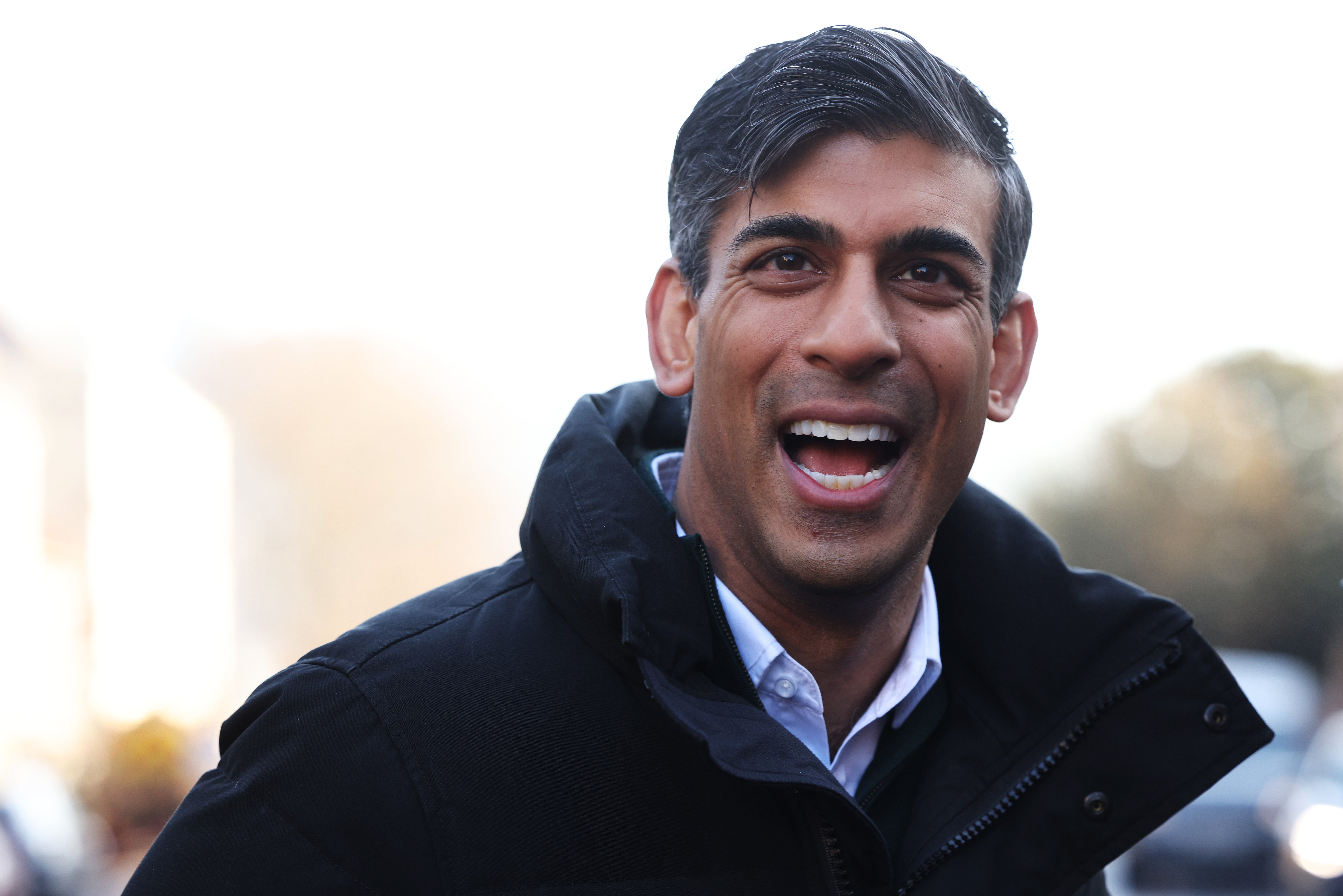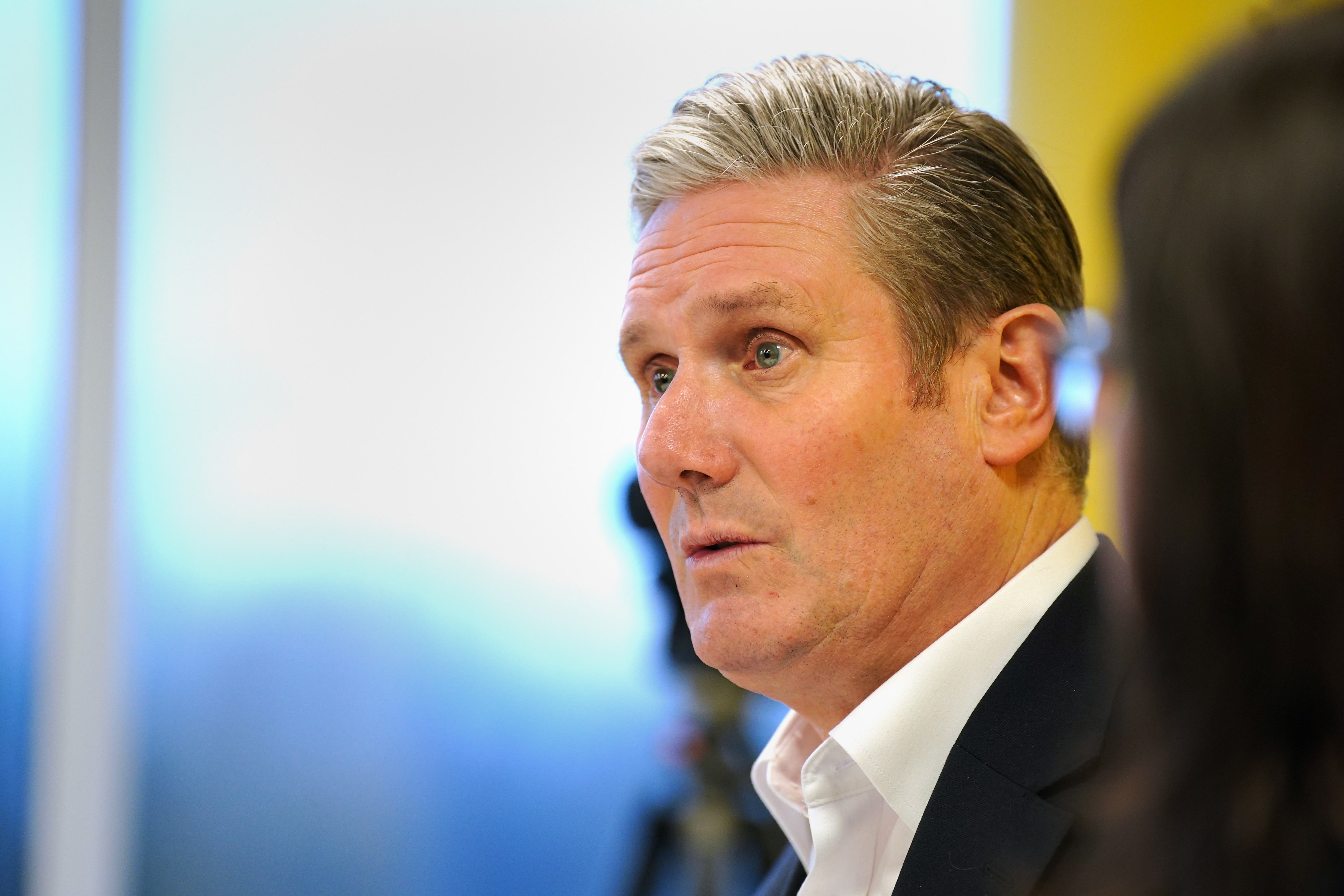The undecided women voters who could determine the next general election result
Everyone’s feeling a bit politically homeless, one voter tells Maya Oppenheim, as Tories and Labour are urged to ‘sit up and notice’ the women who could make all the difference


Your support helps us to tell the story
From reproductive rights to climate change to Big Tech, The Independent is on the ground when the story is developing. Whether it's investigating the financials of Elon Musk's pro-Trump PAC or producing our latest documentary, 'The A Word', which shines a light on the American women fighting for reproductive rights, we know how important it is to parse out the facts from the messaging.
At such a critical moment in US history, we need reporters on the ground. Your donation allows us to keep sending journalists to speak to both sides of the story.
The Independent is trusted by Americans across the entire political spectrum. And unlike many other quality news outlets, we choose not to lock Americans out of our reporting and analysis with paywalls. We believe quality journalism should be available to everyone, paid for by those who can afford it.
Your support makes all the difference.In every election in her life, Laura Arowolo has cast a vote for the Labour Party. But this could all change at the next general election – with the former party member still undecided about who to vote for.
The 32-year-old is one of millions of women estimated to be unsure about which party to support in this year’s general election. Research by the Women’s Budget Group and YouGov discovered a quarter remain undecided – a figure considerably higher than the 11 per cent of men who are uncertain about their voting intention.
“I don’t want my vote to be a wasted vote, so I’m just trying to figure it out,” Ms Arowolo tells The Independent. “I’ve been looking at the Green Party. I don’t know if they would be the right people. I’ve just definitely been thinking about what my options are.”
Ms Arowolo, who is a DJ, says she no longer feels comfortable voting for Labour “in good conscience”, adding that many of her friends are also feeling uncertain.
“Everyone’s feeling a bit politically homeless,” she adds. “There are people who are on various ends of the spectrum – who feel apathetic and aren’t planning to vote, or who are actively seeking out other options. They are like: ‘I’m going to vote Green, because that is the best option that we have.’”
Researchers, who polled 2,000 adults, discovered that women with caring responsibilities are more than twice as likely to refer to childcare or social care as being one of their leading three priorities than the average member of the electorate.

The research may point to one of the main reasons why Jeremy Hunt pledged last year to expand free childcare for British families, with eligible working parents of two-year-olds being told they can claim 15 hours a week from 1 April. But the rollout of the scheme has been chaotic, with many nurseries unable to fill the vacancies for the extra staff required to provide the care, and parents fearing they will miss out on the scheme.
Another expert said that women are more likely to be persuaded by health policies than are men, as they use the NHS more widely and are also more likely to be employed by the health service. The Conservatives have already been warned that it could be the party’s “achilles heel” at the next election, amid a failure to deliver on most of their 2019 pledges to improve the NHS.
“Women represent over half of eligible voters,” said Dr Zubaida Haque of the Women’s Budget Group. “The fact that a quarter of women are currently undecided about which way to vote should make parties sit up and notice.”
She added that the significant number of women who are undecided could be swayed if political parties listen and respond to their policy priorities and concerns.
The fact that a quarter of women are currently undecided about which way to vote should make parties sit up and notice
“While the polling data indicates the continuation of a generational trend of women voters moving away from Conservatives and towards Labour, our polling shows that women’s votes are in no way guaranteed, and should not be taken for granted by any political party.”
In the latest research, pollsters found that Labour had a more substantial lead among women than among men – 14 points in comparison to 11 points. Women were found to be as likely to say they would vote Labour as male voters, but marginally less likely to say they would vote Conservative. Some 17 per cent of women said they would vote for the Tories in comparison to 20 per cent of men.
Professor Sir John Curtice, a polling veteran, explained that women are always more uncertain than men when polled about politics.
“Given women constitute 52 per cent of the electorate, it is obviously true to say women will have a significant say in the election,” Prof Curtice told The Independent.

But Chris Hopkins, a political research director at Savanta, a leading polling research firm, has doubts about how crucial undecided female voters will be in the next general election, which Rishi Sunak has said will probably be held in the second half of the year.
He also said it is a misrepresentation to believe that women “vote as a bloc”. “Ultimately, women are 52 per cent of the population, so to think that they will vote homogeneously is not the case,” he said.
He added that he would expect the proportion of undecided voters to reduce “quite drastically” during the election campaign.
Dr Rosalind Shorrocks, who specialises in gender, political behaviour and voting, argued that, even though women are “almost always” more likely to be undecided on which party to vote for, this bears no relation to the likelihood that they will turn up to vote.
The academic, who is based at Manchester University, added that women are consistently more likely to say that issues such as healthcare are a priority, while men are more likely to prioritise immigration or the economy.
Dr Shorrocks said this is due to women using health services more often than men, being more likely to care for children or older people, and also being more likely to be employed by the health service.
Anneliese Dodds, Labour’s shadow women and equalities secretary, claimed that women are currently “financially worse off, concerned about their safety, and too often stuck on seemingly endless NHS waiting lists”, which she described as “an abject failure from start to finish”.
Christine Jardine, the Lib Dem spokesperson for women and equalities, said: “It shouldn’t take opinion polls to make male politicians realise what women in parliament have been telling them – that we don’t see our concerns being sufficiently addressed and acted on.”
A spokesperson for the Conservative Party declined to comment on the story, stating that they do not respond to questions about polling.
Join our commenting forum
Join thought-provoking conversations, follow other Independent readers and see their replies
0Comments